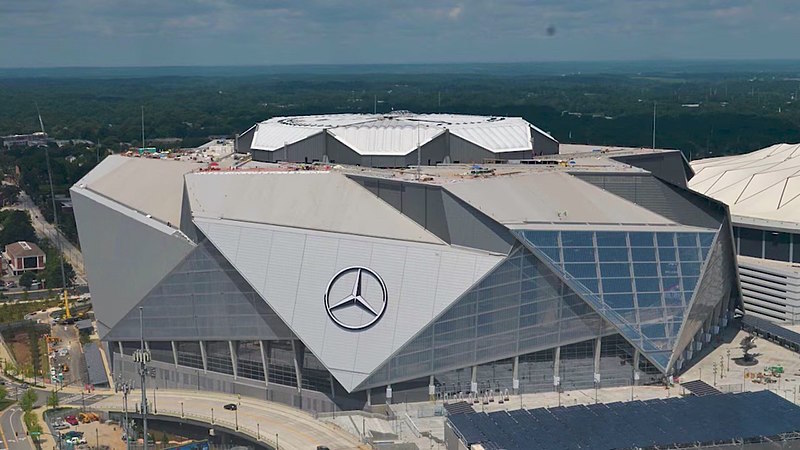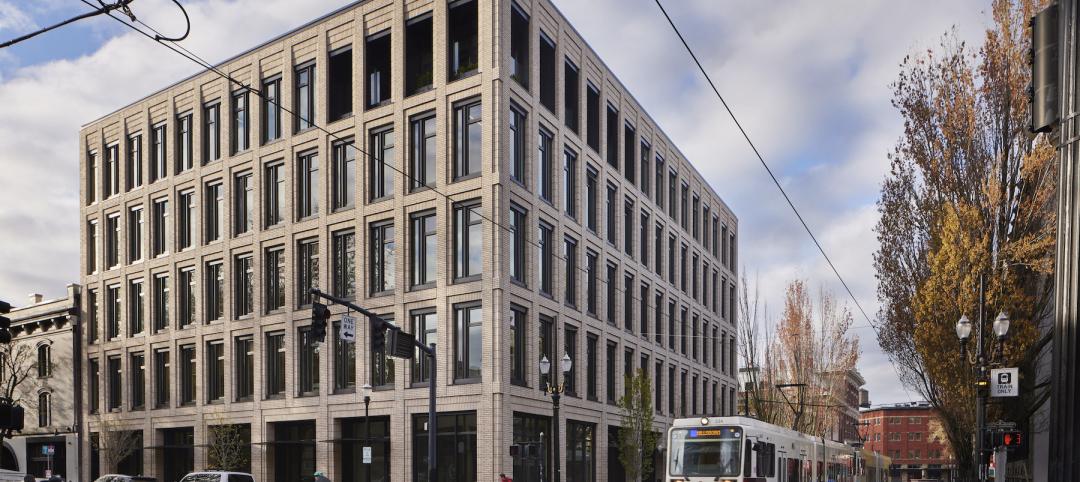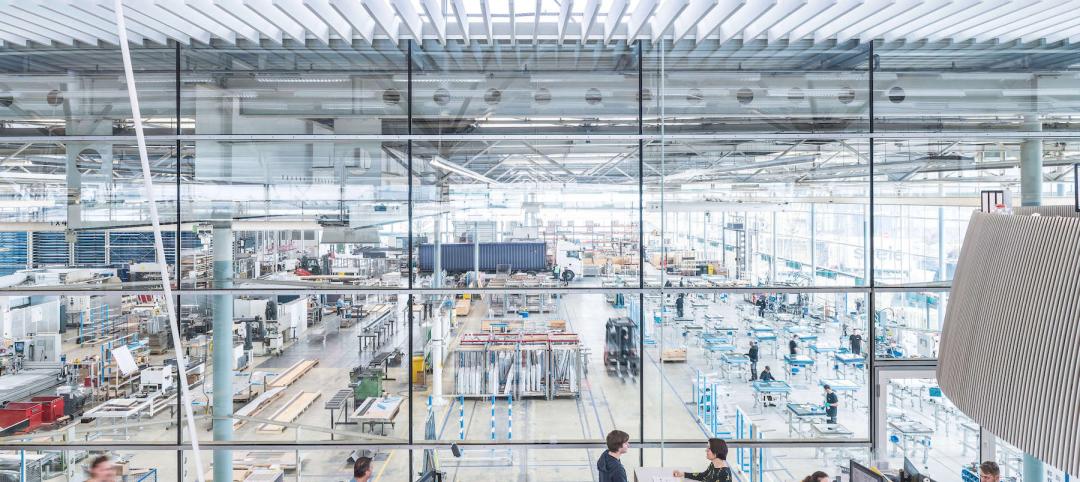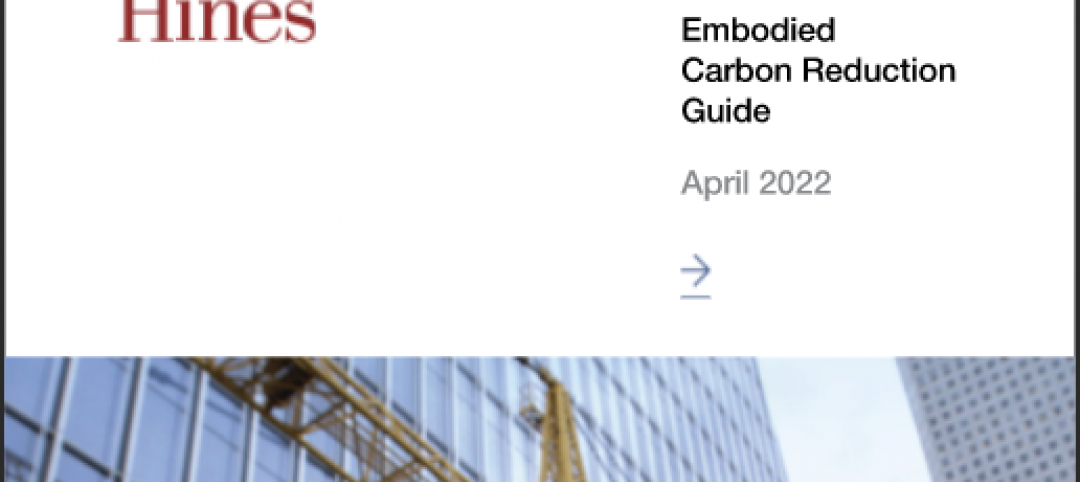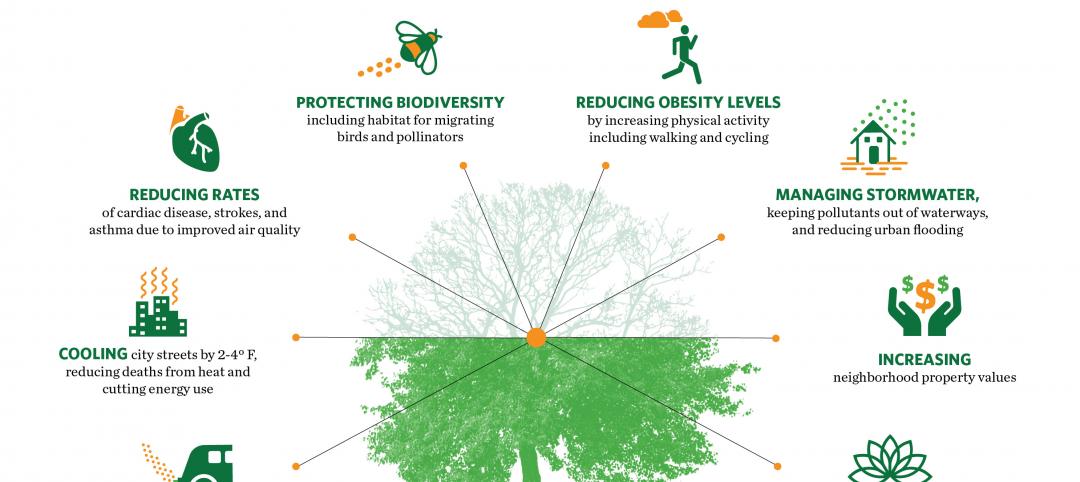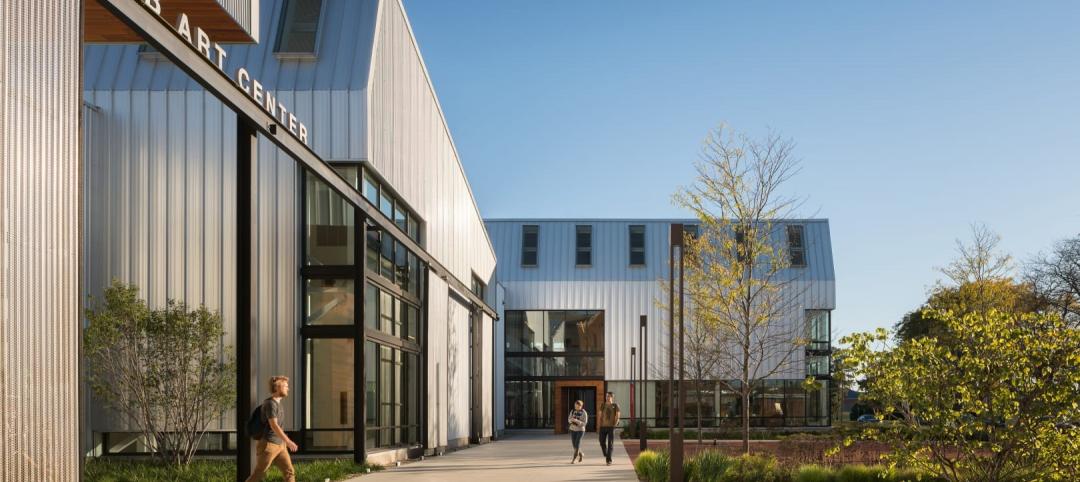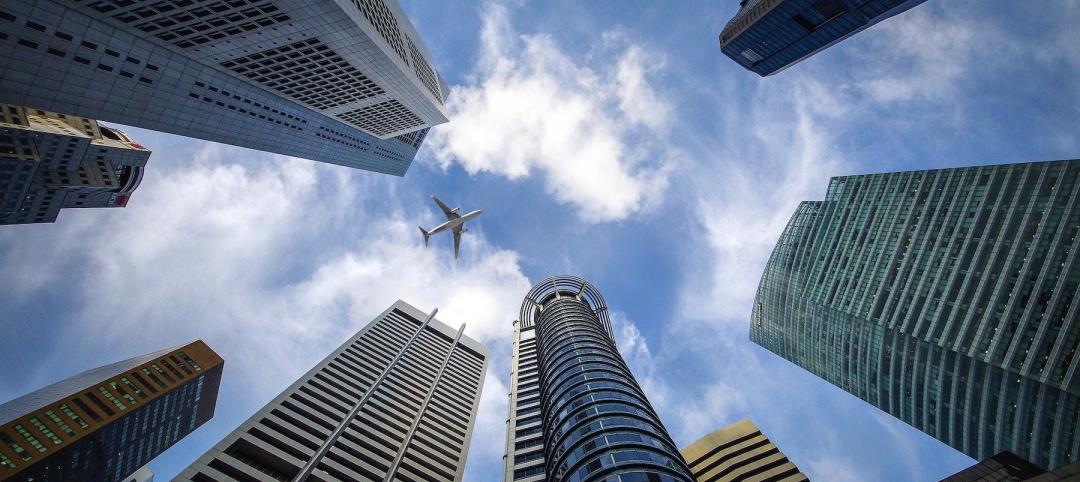The U.S. Green Building Council (USGBC) released the annual list of the Top 10 States for LEED (Leadership in Energy and Environmental Design). The list ranks states in terms of certified square feet per resident in 2017. The list draws attention to states throughout America that are making significant strides in sustainable design, construction, and transformation at the building level and opens up conversations around community and city-level accomplishments in sustainable development. LEED-certified spaces use less energy and water; save money for families, businesses and taxpayers; reduce carbon emissions; and create a healthier environment for occupants and the community at large.
Now in its eighth year, the list is based on 2010 U.S. Census data and includes commercial and institutional green building projects that were certified throughout 2017. Massachusetts retained its top position for the second year in a row with 130 LEED certifications representing 4.48 square feet of LEED-certified space per resident, the highest since 2010.
The mid-Atlantic continues to show strong regional leadership, with both Maryland and Virginia returning to the list for the seventh year running. Also notable, Washington, D.C., which is not included in the official list of top states due to its status as a federal territory, tops the nation with 39.83 square feet of space per resident certified in 2017.
With Georgia, Hawaii and Minnesota all returning to the list for the first time since 2014, it is clear that market uptake for LEED is strong nationwide and not limited to any particular region or corridor. Illinois and Colorado are the only states to have made the list every year since the inception of the ranking in 2010. This year, Illinois comes in third with 3.38 square feet per capita and Colorado places 10th with 2.27 square feet per capita. The 2017 list has the highest average square footage per resident per state since 2010 (2.9). The full ranking is as follows:
Rank State GSF Per Capita
1 MA* 4.48
2 NY* 3.39
3 IL* 3.38
4 HI 3.32
5 MD* 2.75
6 MN 2.45
7 GA 2.44
8 CA* 2.4
9 VA* 2.32
10 CO* 2.27
** DC 39.83
*Included in 2016 Top 10 States for LEED list
**Washington, D.C. is not ranked as it is a federal district, not a state
USGBC calculates the list using per capita figures to allow for a fair comparison of the level of green building taking place among states with significant differences in population and number of overall buildings.
In 2017, LEED for Building Operations and Maintenance (LEED O+M) was once again the most popular rating system within the Top 10 States, representing more than 50% of the total square footage certified. LEED for Building Design and Construction (LEED BD+C) was the second most popular and LEED for Interior Design and Construction (LEED ID+C) was the third most popular rating system.
Collectively, 1,399 commercial and institutional projects achieved LEED certification within the Top 10 States in 2017, representing 314.7 million square feet of real estate. Nationwide, 2,647 commercial and institutional projects achieved LEED certification in 2017, representing 484.6 million square feet of real estate.
More than 40,000 commercial and institutional projects representing more than 6.5 billion square feet of space have been LEED-certified to date worldwide, with another 51,000 projects representing 13 billion square feet in the pipeline for certification. LEED’s newest version, LEED v4, features increased technical rigor; new market sector adaptations for data centers, warehouses and distribution centers, hospitality, existing schools, existing retail and midrise residential projects; and a simplified submission process supported by a robust and intuitive technology platform. Tracking ongoing building performance is a growing priority and a number of projects in the Top 10 States achieved certification through the Arc online performance platform, which uses data to measure and improve sustainability performance. Arc delivers a performance score based on building data and action-oriented strategies across energy, water, waste, transportation, and human experience.
Related Stories
Green | Jun 22, 2022
World’s largest commercial Living Building opens in Portland, Ore.
The world’s largest commercial Living Building recently opened in Portland, Ore.
Coronavirus | May 20, 2022
Center for Green Schools says U.S. schools need more support to fight COVID-19
The Center for Green Schools at the U.S. Green Building Council released a new report detailing how school districts around the country have managed air quality within their buildings during the second year of the COVID-19 pandemic.
Green Specifications | May 12, 2022
MG2’s Sustainable Materials Evaluation System
Learn how MG2’s Sustainable Materials Evaluation System helps clients, prospects, and staff choose the most environmentally feasible materials for their building projects. Candon Murphy, LEED GA, Assoc. IIDA, Design Lab Manager and Materials & Sustainability Specialist with MG2, speaks with BD+C Executive Editor Rob Cassidy.
Sponsored | Healthcare Facilities | May 3, 2022
Planning for hospital campus access that works for people
This course defines the elements of hospital campus access that are essential to promoting the efficient, stress-free movement of patients, staff, family, and visitors. Campus access elements include signage and wayfinding, parking facilities, transportation demand management, shuttle buses, curb access, valet parking management, roadways, and pedestrian walkways.
Sponsored | BD+C University Course | May 3, 2022
For glass openings, how big is too big?
Advances in glazing materials and glass building systems offer a seemingly unlimited horizon for not only glass performance, but also for the size and extent of these light, transparent forms. Both for enclosures and for indoor environments, novel products and assemblies allow for more glass and less opaque structure—often in places that previously limited their use.
Codes and Standards | May 2, 2022
Developer Hines, engineer MKA develop free embodied carbon reduction guide
Real estate management and investment firm Hines has released the Hines Embodied Carbon Reduction Guide. The free guide, produced with Magnusson Klemencic Associates (MKA), is the result of a two-year effort, relying on MKA’s industry-leading knowledge of carbon accounting and involvement in programs such as the Embodied Carbon in Construction Calculator (EC3) Tool.
Codes and Standards | Apr 28, 2022
Architecture firm Perkins&Will to deliver ‘carbon forecasts’ for clients
Global architecture firm Perkins&Will says it will issue its clients a “carbon forecast” for their projects.
Green | Apr 26, 2022
Climate justice is the design challenge of our lives
As climate change accelerates, poor nations and disadvantaged communities are suffering the first and worst impacts.
Architects | Apr 22, 2022
Top 10 green building projects for 2022
The American Institute of Architects' Committee on the Environment (COTE) has announced its COTE Top Ten Awards for significant achievements in advancing climate action.
Building Team | Apr 20, 2022
White House works with state, local governments to bolster building performance standards
The former head of the U.S. Green Building Council says the Biden Administration’s formation of the National Building Performance Standards Coalition is a “tremendous” step in the right direction to raise building performance standards in the U.S.


